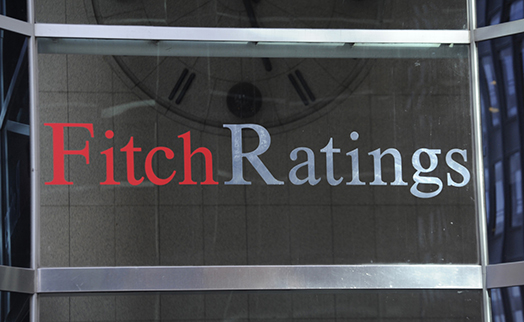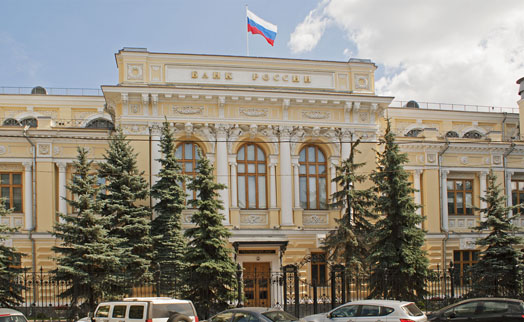29.01.2024 14:13

YEREVAN, January 29. /ARKA/. Fitch Ratings has affirmed Armenia's Long-Term Foreign-Currency Issuer Default Rating (IDR) at 'BB-' with a Stable Outlook
Credit Fundamentals: Armenia's 'BB-' rating reflects per-capita income, governance and business environment indicators that are in line with peers, as well as a robust macroeconomic and fiscal policy framework, with established access to international creditors, anchored by IMF support. Set against these strengths are a high (albeit declining) share of foreign-currency denominated public debt, relatively weak external finances, and high financial sector dollarisation.
Solid Growth Prospects: Armenia recorded a second successive year of strong economic growth, with real GDP growing by an estimated 7.4% (2022: 12.6%), aided by the lingering effects of migration from Russia which has boosted consumption, and the net influx of an estimated 110,000 refugees from Nagorno-Karabakh (NK). In Fitch's view, the durable addition to the labour force and increase in productivity through expansion of highly productive sectors such as information and communication technology is likely to increase potential growth.
Fitch expects growth of 6% in 2024, aided by strong personal consumption and greater government spending and investment, before moderating to 4.9% in 2025, above the projected 'BB median of 3.7%.
Fiscal Loosening Expected: Armenia will sharply expand fiscal spending in 2024 in order to integrate the large refugee influx from NK. Authorities have allocated about 1.5pp of GDP (including 1pp from the reserve fund) for this purpose in 2024 (2023: 0.7%). Despite some permanent revenue-raising measures from 2024, including higher excise taxes on tobacco and alcohol products, revised royalty rates for mining, and new taxes on the gaming sector, as well as continued strong nominal GDP growth, the fiscal deficit will temporarily widen to 4.5% in 2024 (current 'BB' median: 2.8%), before moderating to 2.9% in 2025.
Foreign-currency Debt Exposure: General government debt (GGD) amounted to an estimated 48.2% of GDP at end-2023 ('BB' median: 52%). Authorities bought back USD186.8 million of a USD313.2 million Eurobond maturing in 2025, given the favourable budget performance and cash reserves. The assumption of part of the debt of the liquidated political entity of the Republic of NK increased GGD by 2.2pp of GDP in 2023. Fitch expects debt to stabilise at 49.4% of GDP on average in 2024-25.
The FX proportion of GGD fell further to 55% as of end-2023 (current 'BB' median: 53%), from 62% in 2022 and a peak of 86% in 2015, reflecting the strength of the dram relative to historical levels, as well as a greater shift towards local issuances, in line with official strategy.
Geopolitical Risks: Following the capture of NK territory by Azerbaijan in September 2023, Armenia is currently seeking to negotiate a peace agreement. In our view, geopolitical risks persist as several contentious issues remain between the two countries, including the construction of a land link between Azerbaijan and its exclave of Nakhichavan, which would run through Armenian territory, and demarcation of the border in some areas.
Armenia's economy is highly dependent on Russia for trade and energy, and Fitch does not expect meaningful diversification away from Russia in the near term. However, relations with Russia are strained following its perceived failure to implement peacekeeping pledges in NK. Armenia continues to implement Western sanctions targeted at Russian entities within its banking sector. Nevertheless, goods exports to Russia increased by nearly 300% since 2021, and Russia accounted for 51% of exports and 30% of imports in 1Q-3Q23.
External Balance Sheet: The net international investment position improved to -25% as of 2023 from -79% in 2021, aided by favourable current account performance and dram appreciation. Net external debt fell by 21pp of GDP over the period. Fitch expects the current account deficit to widen to an average of 4.8% of GDP in 2024-25 (2023: 4%; current 'BB' median: 2.5%) as one-off migration-related inbound transfers fade, and imports increase. Fitch expects net external debt to average 28% of GDP in 2024-25 (projected 'BB' median: 15%), while the external liquidity ratio will remain comfortably over 100%.
Solid External Creditor Support: Armenia benefits from strong support and technical assistance from a range of multilateral and bilateral creditors. As of November 2023, 41% of general government debt was owed to official lenders. Authorities intend to rely on a pipeline of concessional borrowing to build up cash buffers in 2024-25 to keep borrowing costs low and reduce liquidity risks. In December 2023, Armenia successfully concluded the second review of its USD129 million Stand-By Arrangement with the IMF, enabling it to access a total of USD73.3 million for balance of payments or budgetary support, although Armenia continues to treat the programme as precautionary.
Banking Sector Dollarisation: The banking sector is marked by relatively high dollarisation, although deposit dollarisation had fallen by 4.6pp from end-2022 to 50.5% in 2023. Loan dollarisation remains largely stable at 34.7%, despite Central Bank of Armenia phasing out new FX mortgages in 3Q23. Demand for FX loans from private non-financial corporations remains high, reaching 19.3% yoy as of November 2023, mainly due to their lower interest rates. However, banks currently have adequate dram and FX liquidity, strong asset quality (non-performing ratio of 2.8% as of November 2023), and high capitalisation (November 2023: common equity Tier-1 capital adequacy ratio of 17.8%).
There are signs of overheating in the residential property market, with the IMF estimating prices to be overvalued by up to 25%, owing in part to the heightened demand from the population surge. However, Fitch sees risks of a disorderly correction as relatively low, and any spillover on the broader economy will likely be limited, given strong household and corporate balance sheets.
Low Inflation: Price growth fell into deflationary territory in Armenia in 2023 (December: -0.6%), as the effects of a strong dram, lower international food prices, and the lagged impact of a tight monetary policy were felt. Fitch's expectation of a weaker dram will result in higher inflation in 2024-25, averaging 3.9% (target: 4%). The central bank cut rates by a cumulative 150bp to 9.25% in 2023. High dollarisation levels impede monetary policy transmission to some extent.
ESG - Governance: Armenia has an ESG Relevance Score (RS) of '5' for both Political Stability and Rights and for the Rule of Law, Institutional and Regulatory Quality and Control of Corruption. These scores reflect the high weight that the World Bank Governance Indicators (WBGI) have in our proprietary Sovereign Rating Model. Armenia has a medium WBGI ranking at the 44th percentile, reflecting a recent track record of peaceful political transitions, a moderate level of rights for participation in the political process, moderate institutional capacity, established rule of law and a moderate level of corruption.
RATING SENSITIVITIES
Factors that Could, Individually or Collectively, Lead to Negative Rating Action/Downgrade
- External Finances: External shocks that result in a sizeable decline in international reserves or increase in the current account deficit.
- Structural: Materialisation of geopolitical risks that undermine political and economic stability.
- Public Finances: A substantial increase of general government debt/GDP, for example due to a slowdown in growth or marked fiscal loosening.
Factors that Could, Individually or Collectively, Lead to Positive Rating Action/Upgrade
- Macro: Increased confidence in durability of high growth rates relative to rating peers that results in a sustained increase in GDP per capita.
- Public Finances: Fiscal consolidation that supports a decline in general government debt/GDP, and deepening of local-currency funding sources that durably reduces the FX proportion of government debt.-0-
Read the news first and discuss them in our Telegram
Tags:





















